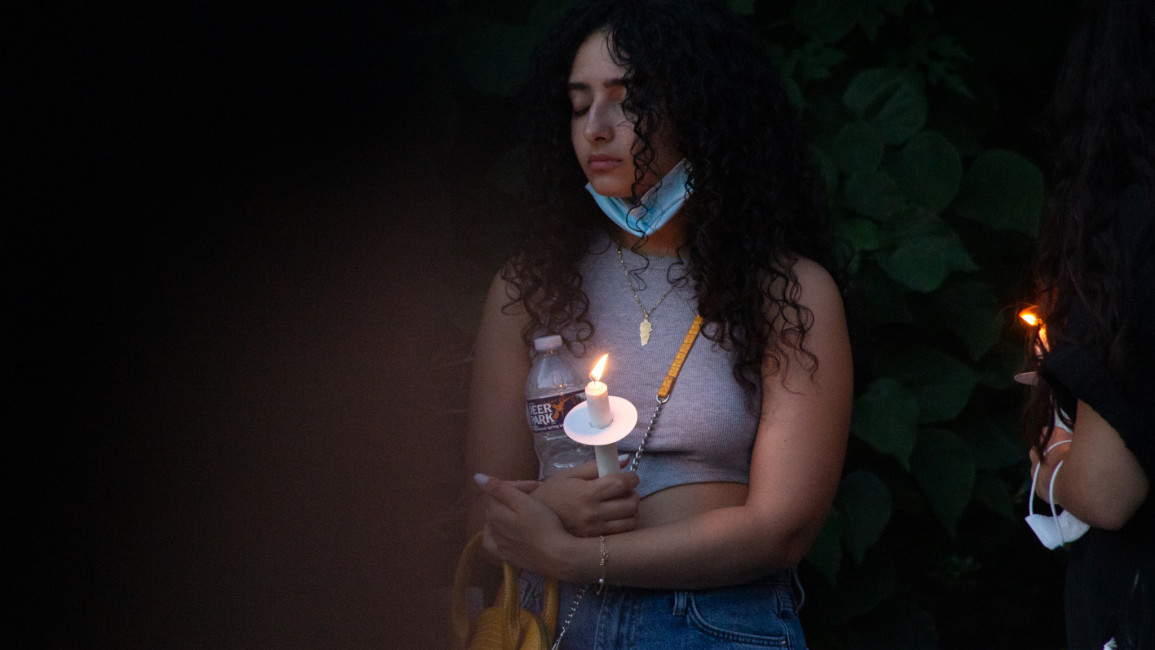Vigil held at Washington's Khalil Gibran memorial to mark Beirut explosion
Washington DC, The New Arab: On the one-year anniversary of the deadly Beirut blast, mourners around the world marked the tragic day.
At the Khalil Gibran memorial in Washington, DC on Tuesday night, a crowd gathered with candles to honour the more than 200 people who perished on 4 August 2020 in a blast that wounded more than 7,500 and left hundreds of thousands homeless.
The fire and explosions, which happened in short succession, took place at the Port of Beirut caused by a huge stockpile of ammonium nitrate that had been repeatedly flagged over the years as a safety threat.
Opinion: "Western governments sensed an opportunity to meet long-standing policy objectives of isolating #Lebanon's ruling coalition due to its alliance with #Hezbollah," writes Habib Battah. #Beirutblasthttps://t.co/7tKyBHork4
— The New Arab (@The_NewArab) August 4, 2021
"My wife is Lebanese, and we were visiting when the explosion happened," Sophien Ben-Achour, a Tunisian American from Washington, who was visiting the vigil with friends, told The New Arab. "This is a good way for people to have closure. But they don't really have closure. They need justice."
The massive explosion - which was felt as far away as Cyprus and Turkey - came at a time when Lebanon had already been grappling with a severe financial crisis, with a depleted lira that plunged much of the population into poverty. The explosion exacerbated an already-dire situation.
Ibrahim Mardam-Bey, who attended the vigil with his son, Sami, was in the US when the explosion happened. Originally from Beirut, he left in 1975 - the year Lebanon's civil war started. He normally visits the country several times a year but has not returned since the port explosion.
"It was so shocking. My family was there. This is one symptom of a country in really bad shape," he told The New Arab.
Brooke Anderson is The New Arab's correspondent in Washington DC, covering US and international politics, business, and culture.
Follow her on Twitter: @Brookethenews



